NHRC holds open house discussion on ‘Access to Legal Aid to Victims’
Press Release
National Human Rights Commission
New Delhi, 26th April, 2024
NHRC holds open house discussion on ‘Access to Legal Aid to Victims’
NHRC, Chairperson, Justice Shri Arun Mishra said nobody should be deprived of justice because of their socio-economic status
The National Human Rights Commission (NHRC), India organized an open house discussion on ‘Enhancing Access to Legal Aid for Victims.’ The meeting was chaired by NHRC, India Chairperson, Justice Shri Arun Kumar Mishra. In the meeting Members, Shri Rajiv Jain and Smt. Vijaya Bharathi Sayani; Secretary General Shri Bharat Lal; Director General (Investigation) Shri Ajay Bhatnagar; Registrar (Law) Shri Surajit Dey and Joint Secretary Shri Devendra Kumar Nim along with other officers of the Commission and the government were present. It was also attended by representatives from various governmental ministries, autonomous bodies, legal practitioners, non-governmental organizations (NGOs), academic institutions, and research scholars, contributing to discussions on pertinent issues surrounding legal aid accessibility for victims. The three technical sessions of the discussion included: i.) Legal Aid at Police Station Levels - To identify challenges faced by the accused, victims, and their families in seeking legal assistance at Police Stations. ii.) Identifying and addressing challenges faced by the victim for obtaining victim compensation in India and the way forward - To discern issues in the satisfactory grant of victim compensation schemes through understanding the definition of the term “victim” under various provisions of law. iii.) Role of NGOs and Academic Institutions ensuring Access of Legal Aid to Victims - To understand the central role of NGOs and Universities in ensuring equal access to justice for all. Chairing the meeting, NHRC, India Chairperson, Justice Shri Arun Mishra mentioned Articles 39A, 21, and 22 from the Constitution of India emphasizing that nobody should be deprived of equal justice because of their socio-economic status. Legal Aid system is not only for victims but for every litigant and that too by a competent lawyer. Despite the existence of legal provisions and initiatives by the National Legal Services Authority (NALSA), there are some persisting problems such as accused in far-flung areas held in jail and are not awareof Legal Aid programs. Therefore, it is pertinent to organize an awareness program, especially on behalf of Jail authorities.
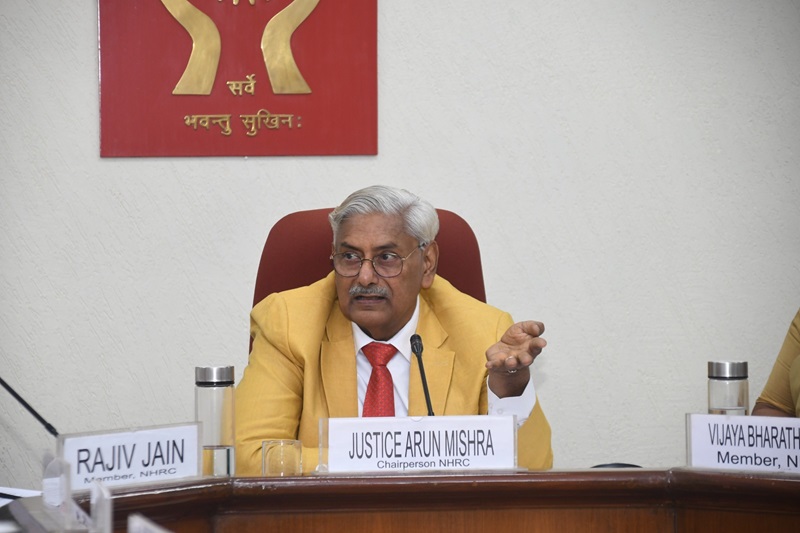
He said that the lectures should be organized by Lawyers to spread awareness in Universities. He also highlighted that Legal Aid clinics are not functioning effectively in colleges. It is important to expand the horizon and focus a little more in providing legal aid to victims.
NHRC, India Member, Shri Rajiv Jain highlighted the issues that NALSA guidelines issued in 2018 on legal aid was not taken up further. Compensation to victims gets delayed in cases even in those where a timeline is also prescribed. He also recommended setting up a central portal on compensation assistance to be maintained by NALSA or the Department of Justice.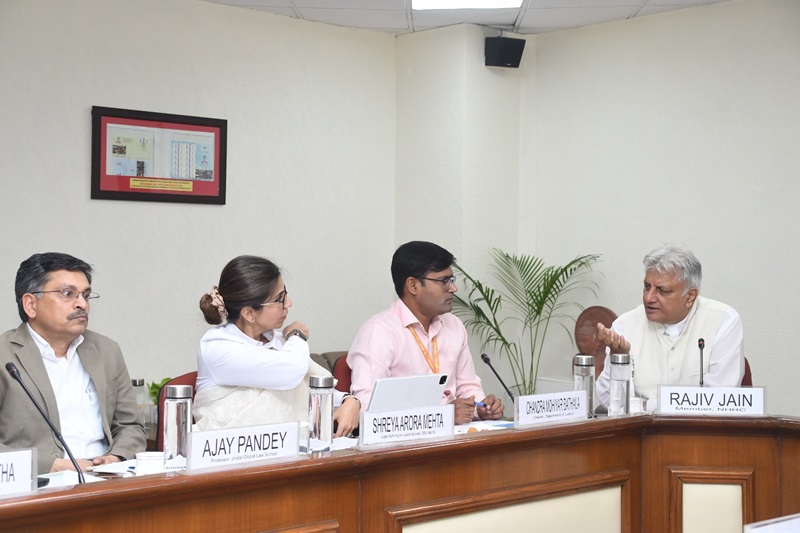
Earlier, Secretary General, Shri Bharat Lal highlighted that it's crucial to highlight the significance of providing legal aid to victims, especially during the FIR registration stage, where police comprehension of the NALSA scheme 2018 and Article 357A of Cr.P.C. is pivotal. Notably, many victims lack education and legal awareness, necessitating effective outreach strategies to overcome language barriers and ensure they understand the availability of legal assistance. NALSA should play an active role in raising awareness and facilitating access to justice. Addressing the substantial gaps in case reporting between police stations and agencies like the CBI is essential. This involves shifting the mindset of police officials dealing with less educated individuals and sensitizing them to assist genuine victims in obtaining compensation.
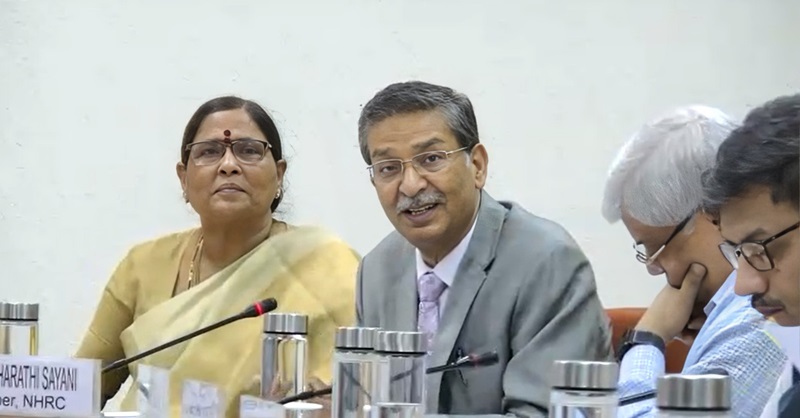
Shri Devendra Kumar Nim, Joint Secretary briefed them about India's constitutional provisions and initiatives aimed at providing free legal aid to the poor and marginalized sections of society, ensuring equal access to justice for the victims.
The discussions included the steps taken by NALSA in collaboration with the Department of justice ensuring access to legal aid. NALSA discussed the challenges faced by them in providing legal assistance to the poor section of society. They elaborated on the presence of the existing system of providing legal aid by NALSA through different schemes for victims of drug abuse, acid attacks, trafficking, etc. They also highlighted the presence of trained lawyers, legal aid clinics, and an under-trial review committee in every district presided by a District Judge to ensure the reach of legal aid to victims.
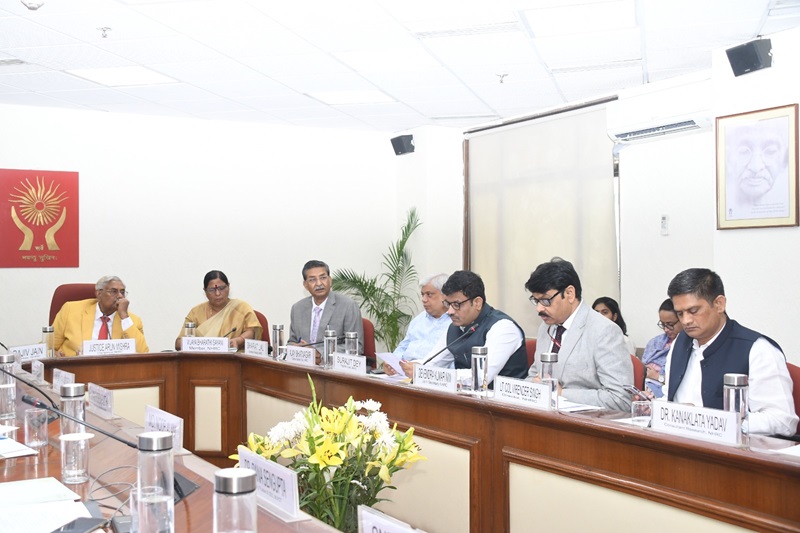
Various advocates and experts addressed the issues of Victim Compensation Schemes in various fields such as the Juvenile Justice Act, Acid Attack Survivors, Rape Survivors, Silicosis Compensation, etc. They raised issues such as differences of awarded compensation in various districts across Delhi. They highlighted that labourers are not aware of the provision of Compensation and also are not notified by the concerned doctors that they are liable for any kind of compensation. The help of Legal aid should also be extended to hospitals and not just police stations. Private Hospitals should provide free medical support to Acid attack victims.
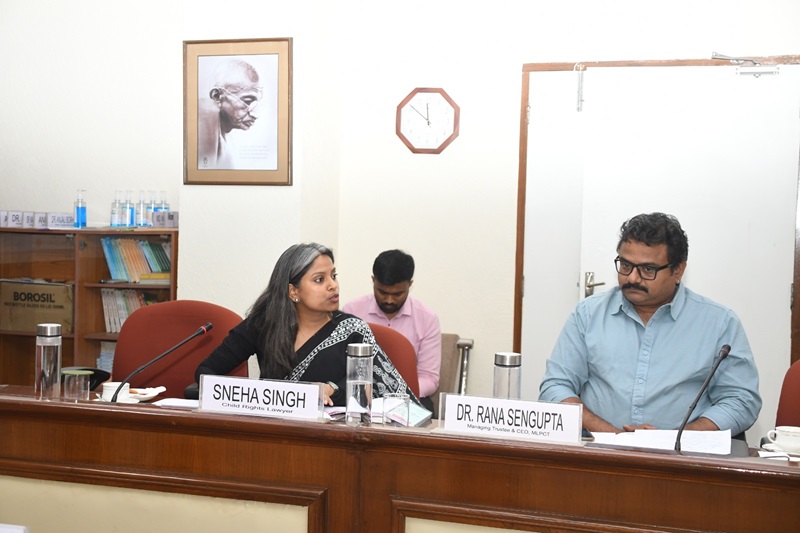
Furthermore, it is also emphasized that there is a need of developing network of pro-bono lawyers. NGO’s also play an important role in providing support to the victims and therefore, it necessary to provide capacity building training should be provided to them. The challenges faced by victims of rural areas in accessing legal aid are because of lack of infrastructure facilities, transportation etc.
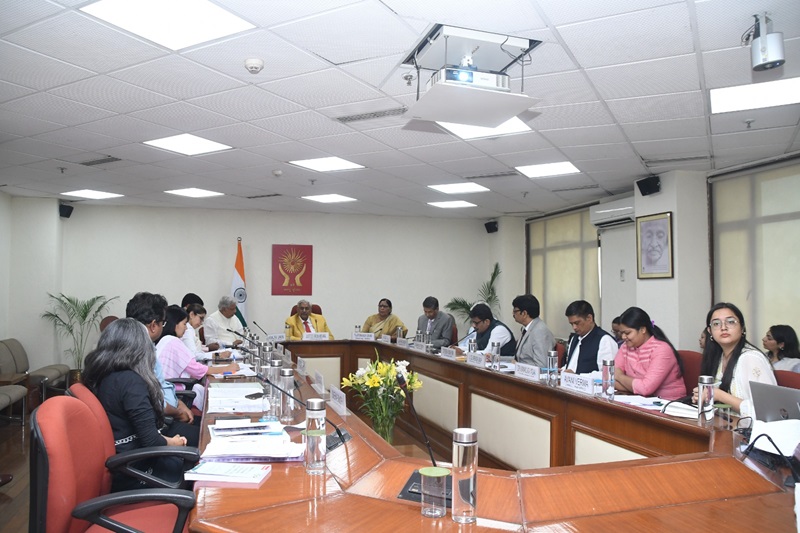
The discussion further continued by explaining the role of legal aid clinics in universities. It is recommended to develop a specific mandate as to what sort of cases are received for women and child. Thus, it will be helpful in granting legal aid to demographic specific communities. Students should be encouraged to go to society as it will provide manpower to provide legal aid services. It is also necessary that there should be a compulsory paper on legal aid in Universities. Additionally, the Bar Council of India should also take this initiative to monitor legal aid clinics in colleges. NHRC, Law schools and Bar Council of India can assess the quality of work of students and based on that, accreditation of Law school can be divided.
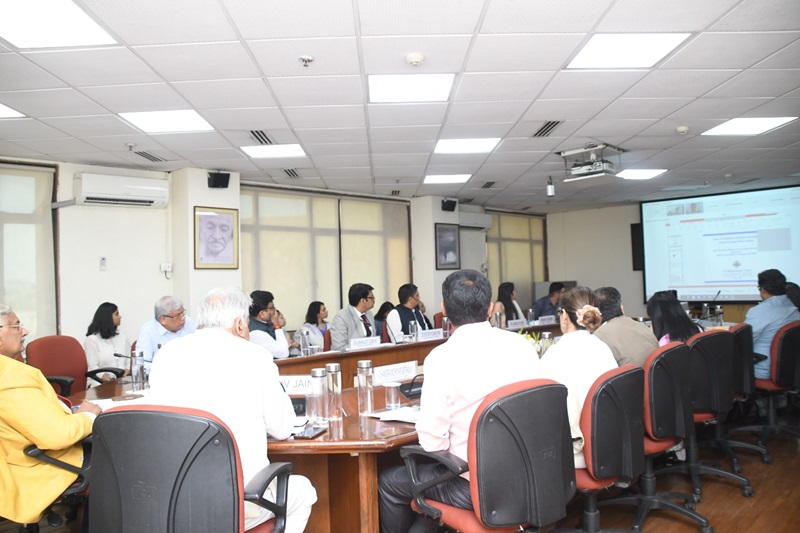
The discussion further continued by explaining the role of legal aid clinics in universities. Students should be encouraged to go to society as it will provide manpower to provide legal aid services. It is also necessary that there should be a compulsory paper on legal aid in Universities. The Bar Council of India should also take this initiative to monitor legal aid clinics in colleges.
***







 राष्ट्रीय मानव अधिकार आयोग, भारत
राष्ट्रीय मानव अधिकार आयोग, भारत

